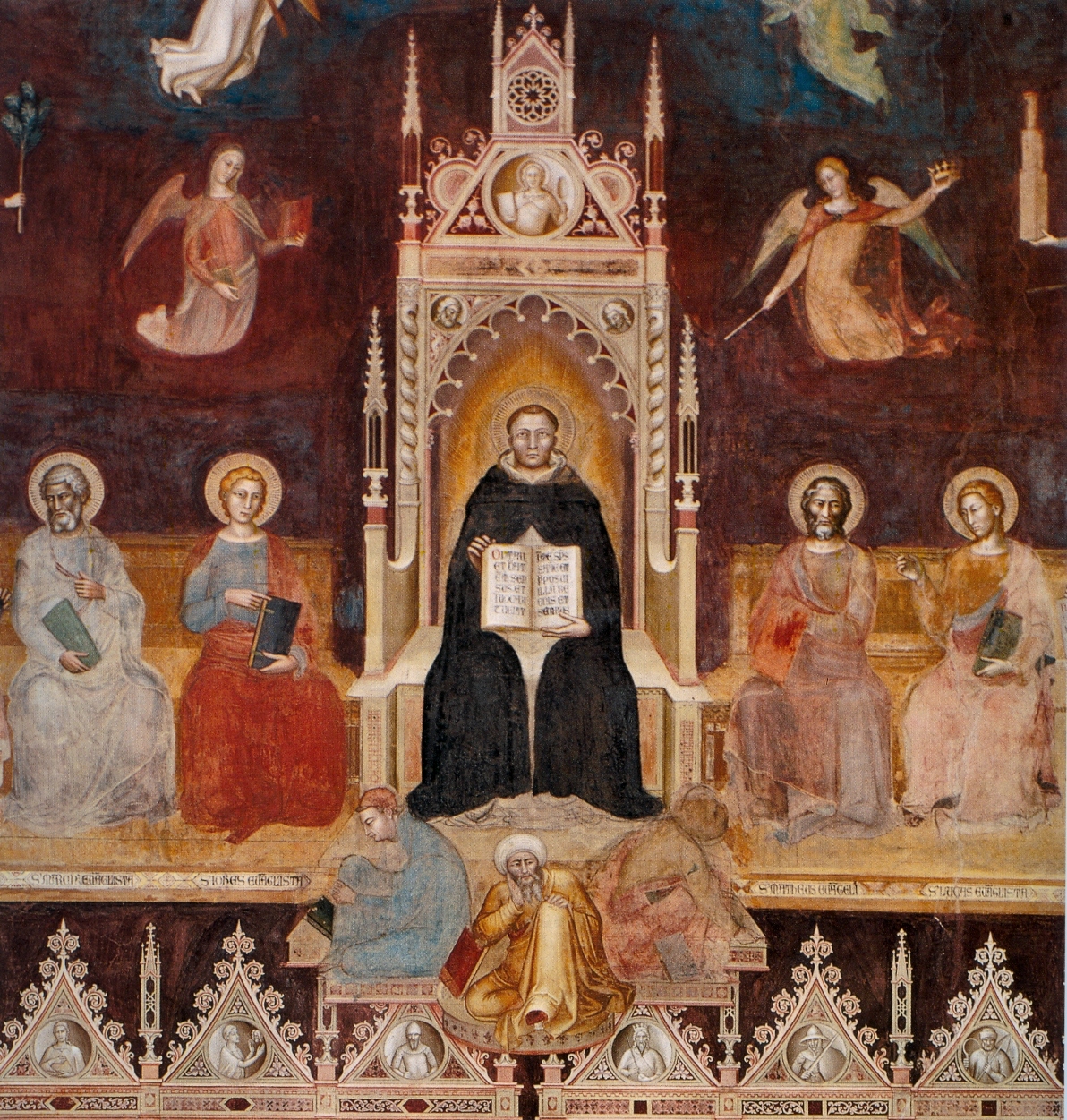
In the Summa, St. Thomas makes the case that man, both male and female, naturally desire happiness. He claims that ultimate happiness lies in beholding the beatific vision. The phrase, “beholding the beatific vision,” is theology speak for seeing the essence of God and, according to St. Thomas, is the reward for those who make it to heaven. Although Aquinas’ Summa provides answers for nearly every theological question, to simplify things, you can think of the book as a complete guidebook for how to live your life so that you’re likely to get to heaven. If what St. Thomas wrote in the Summa is true, then we can certainly trust him to guide us towards our heavenly goal, but were his writings worthy of our trust?
St. Thomas Aquinas’ Highly Respected Position in the Church
St. Thomas Aquinas holds a top place of honor in the Church among Her philosophers and theologians. He was declared a Doctor of the Church by St. Pius V in the sixteenth century. This title, meaning “Teacher of the Church”, is given to Catholic writers whose teachings have greatly benefited the entire Church. St. Thomas is more specifically referred to as the “Angelic Doctor” and no other writer is cited as often as him in the Catechism of the Catholic Church.
When Catholic philosophers and theologians have started to get off track, the pope at any given time in history has often written a document called an encyclical to urge them to get back on track and instruct them how to do so. Here, I highlight two such encyclicals in which a pope has instructed philosophers and theologians to return to the writings of St. Thomas as their true guide:
- Pope Leo XIII wrote an encyclical called Aeterni Patris, On the Restoration of Christian Philosophy. In it, he reminded Catholic philosophers that Blessed Urban V, in an address to the students at the Academy of Toulouse, said, “It is our will, which We hereby enjoin upon you, that ye follow the teaching of Blessed Thomas as the true and Catholic doctrine and that ye labor with all your force to profit by the same.”1
- St. Pope John Paul II wrote an encyclical called Veritas Splendor, The Splendour of Truth, to get moral theologians back on track. In the encylical, St. John Paul II cited St. Thomas Aquinas eleven times!
There are many more things that I could write here about the life of St. Thomas to show that he is a true guide on the path to heaven, such as his devotion to the Virgin Mary and his heroic chastity, but this article was never intended to summarize his entire life. My intention here is to briefly show you that St. Thomas Aquinas holds a position of primary importance among Catholic philosophers and theologians and I believe that that has been accomplished.
Why the Psychology, Philosophy and Theology of St. Thomas Aquinas Is Relevant to This Blog
The slogan for this blog is “Your Catholic Guide Through the Trials of Life.” I do not rely merely on myself as I attempt to guide you, but rely on the sources of all of my relevant education and training, especially my education on the writings of those who have gone before me and are trustworthy. St. Thomas Aquinas not only holds a place of primary importance as a teacher in the Church, he and his writings hold a place of primary importance in my own heart and in this blog, your blog.
St. Thomas has “followed” me throughout all of my Catholic graduate education. For example, my philosophical and theological education was strongly influenced by the writings of St. Thomas Aquinas during my graduate studies in Moral Theology at Holy Apostles College & Seminary. Many of my professors there were in the Order of Preachers (O.P.), the same religious order that St. Thomas was in, and they revered him and his teachings. After that, as a coincidence or movement of the Holy Spirit, I happened to do my psychotherapy internship at Thomas Aquinas Psychological Clinic before it closed its doors upon the death of its owner and founder. Lastly, I received education and training in the psychology of St. Thomas Aquinas by Fr. Brian Mullady, O.P. at Holy Apostles and, again later, by one of my mentors, Dr. Suzanne Baars, daughter of the late Conrad Baars, M.D., author of many books on the psychology of St. Thomas.
This blog is for readers who want trustworthy Catholic guidance on life’s very real problems. They want to learn how to experience deep personal and relational healing so that they can live out their unique vocations to love with ever greater peace, holiness, and joy. The writings of St. Thomas Aquinas, especially as explained in the books of Dr. Conrad Baars, are woven into the very fabric of this blog. It is largely due to my reliance on the teachings of the Angelic Doctor, that I can even begin to try to guide you towards earthly peace and our ultimate joy of seeing the essence of God as our heavenly reward.
Your Blog, Not Mine
Lastly, I’d like to remind you that this blog is for you. I invite you to tell me what your biggest problems are so that I can address them in future articles. Please let me know your thoughts about this article in the comments below. How have the teachings of St. Thomas impacted your life?
Citations
- Cajetan’s commentary on Sum. theol., IIa-IIae 148, 9. Art. 4; Leonine edit., Vol. 10, p. 174, n.6, as cited in Aeterni Patris, Encyclical of Pope Leo XIII, On the Restoration of Christian Philosophy.

Recent Comments